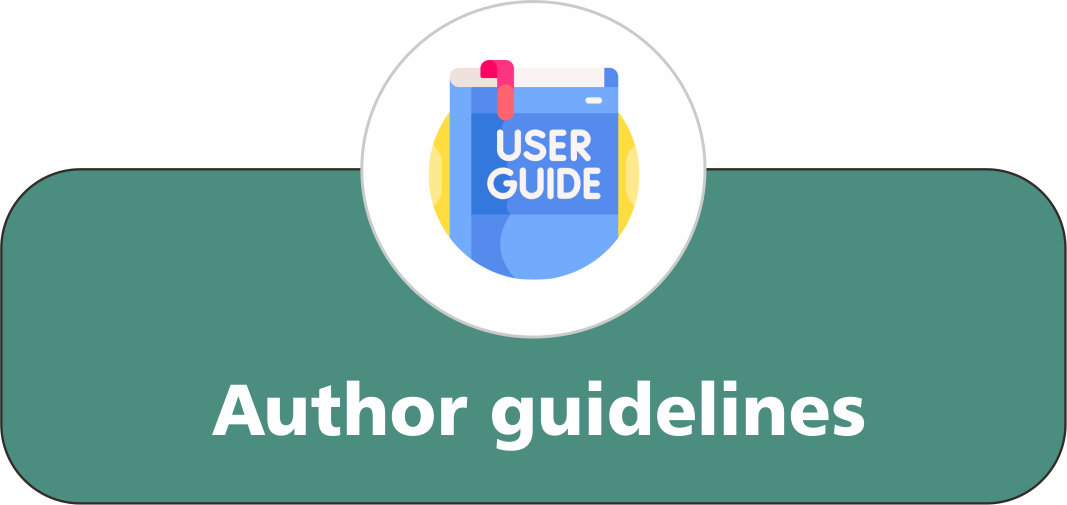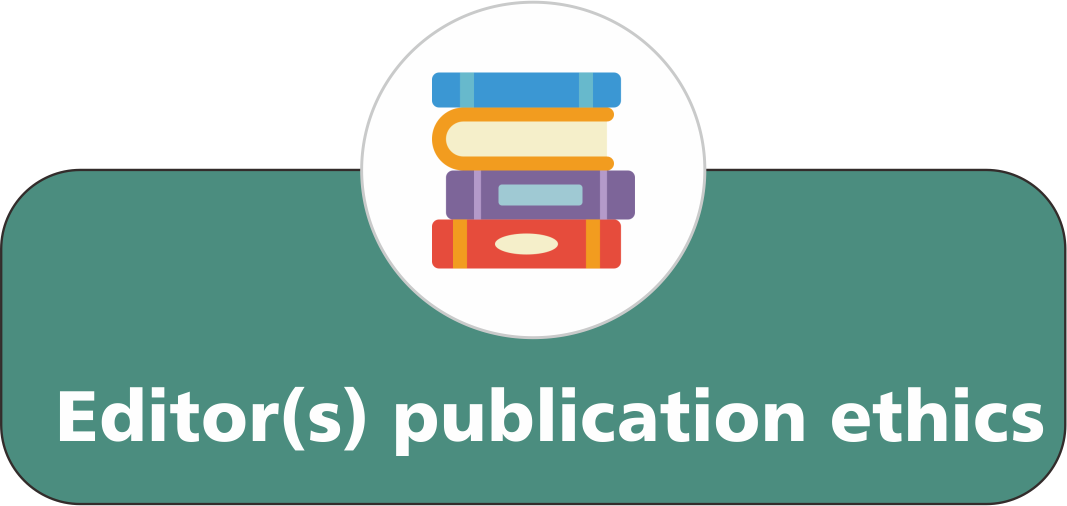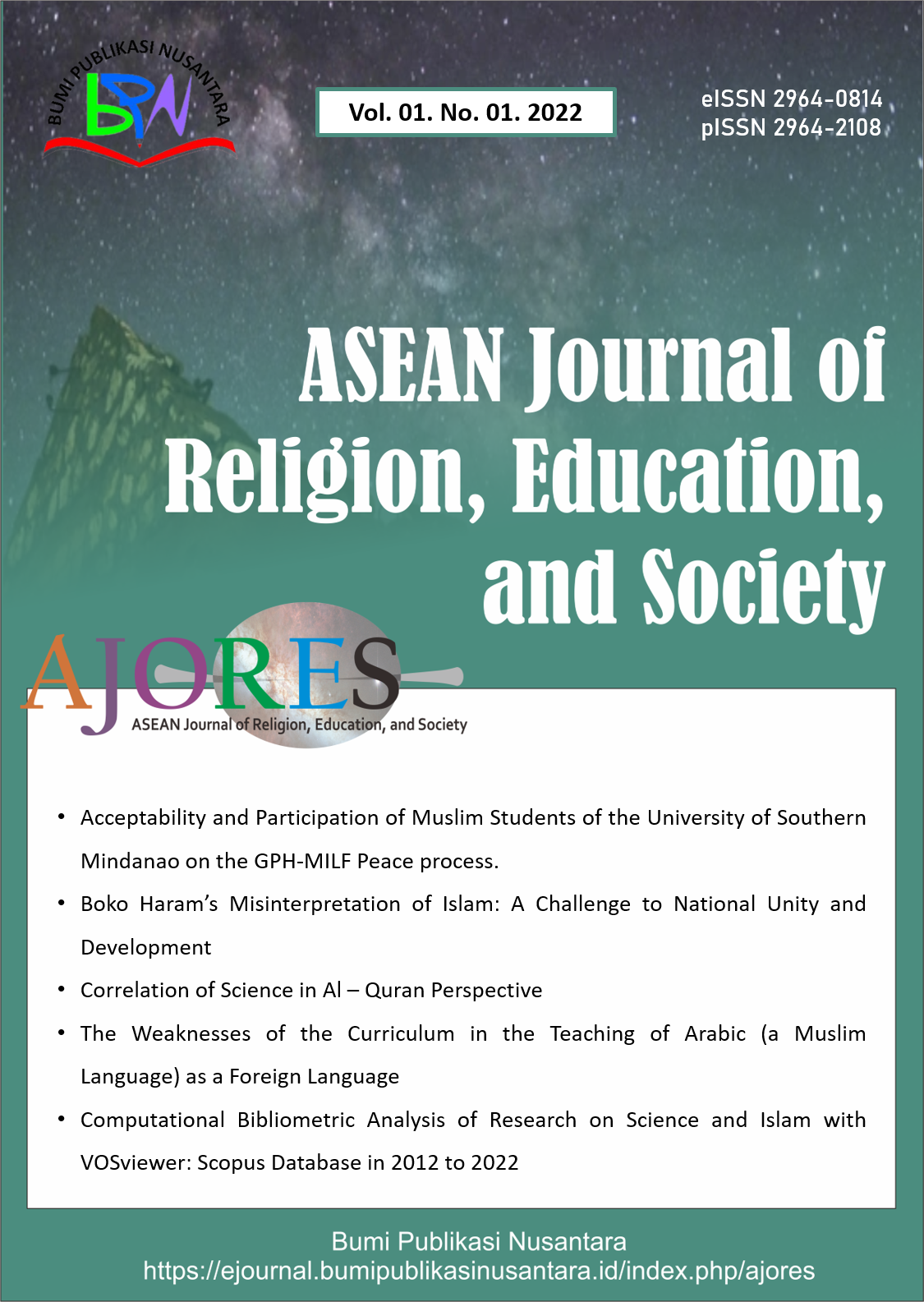Impact of Traditional Qur'anic Schools on Islamic Education
 ), Ayuba Olaniyi Jibril(2),
), Ayuba Olaniyi Jibril(2),
(1) Al-Hikmah University Ilorin
(2) Al-Hikmah University Ilorin
 Corresponding Author
Corresponding Author
Abstract
Keywords
References
Al Husaeni, D. F., Urwah, M. A., Inayah, S. S., Rahmat, M., Nugraha, R. H., and Firdaus, N. (2022). The phenomenon of al tasyabbuh: Birthday celebration in the view of students, education and the perspective of ulama based on islamic law. Indonesian Journal of Multidiciplinary Research, 2(2), 347-360.
Cole, G. R. (2004). Liberated slaves and islam in nineteenth-century West Africa. The Yoruba Diaspora in the Atlantic World, 11(1/2),383-403.
Dariah, A. R., Salleh, M. S., and Shafiai, H. M. (2016). A new approach for sustainable development goals in Islamic perspective. Procedia-Social and Behavioral Sciences, 219, 159-166.
Demina, D., Rexy, T., and Danyl, A. (2022). The use of quranic learning strategies through the wafa method in elementary schools. Journal International Inspire Education Technology, 1(2), 62-73.
Firman, F., Alef, R., and Eric, M. (2022). Use Of zoom meeting applications to memorize the qur’an online. Journal International Inspire Education Technology, 1(2), 99-110.
Hashim, C. N., and Langgulung, H. (2008). Islamic religious curriculum in Muslim countries: The experiences of Indonesia and Malaysia. Bulletin of Education & Research, 30(1), 1-19.
Isaack, M. A. (2018). Islamic education in Kenya from colonial period to date. International Academic Journal of Social Sciences and Education, 2(1), 1-11.
Law, R. (1985). How many times can History repeat itself? Some problems in the traditional history of Oyo. The International Journal of African Historical Studies, 18(1), 33-51.
O'Hear, A. (2006). Elite slaves in Ilorin in the nineteenth and twentieth centuries. The International journal of African historical studies, 39(2), 247-273.
Omer, S. (2010). Some lessons from Prophet Muhammad (SAW) in architecture: The prophet’s mosque in Madīnah. Intellectual Discourse, 18(1), 115-140.
Salako, T. A., and Abiodun, A. I. (2019). Challenges and prospects of Qur'anic schools in the 21st century: A case study of Qur’anic schools in Ijebu-Ode. Al-Hikmah Journal of Humanities and Social Sciences. Faculty of Humanities and Social Sciences, Al-Hikmah University Ilorin, Kwara State, 5(1), 30-45.
Article Metrics
Abstract View : 1794 times
: 1794 times Download : 1209 times
Download : 1209 times
Refbacks
- There are currently no refbacks.
Copyright (c) 2023 Bumi Publikasi Nusantara

This work is licensed under a Creative Commons Attribution-ShareAlike 4.0 International License.







